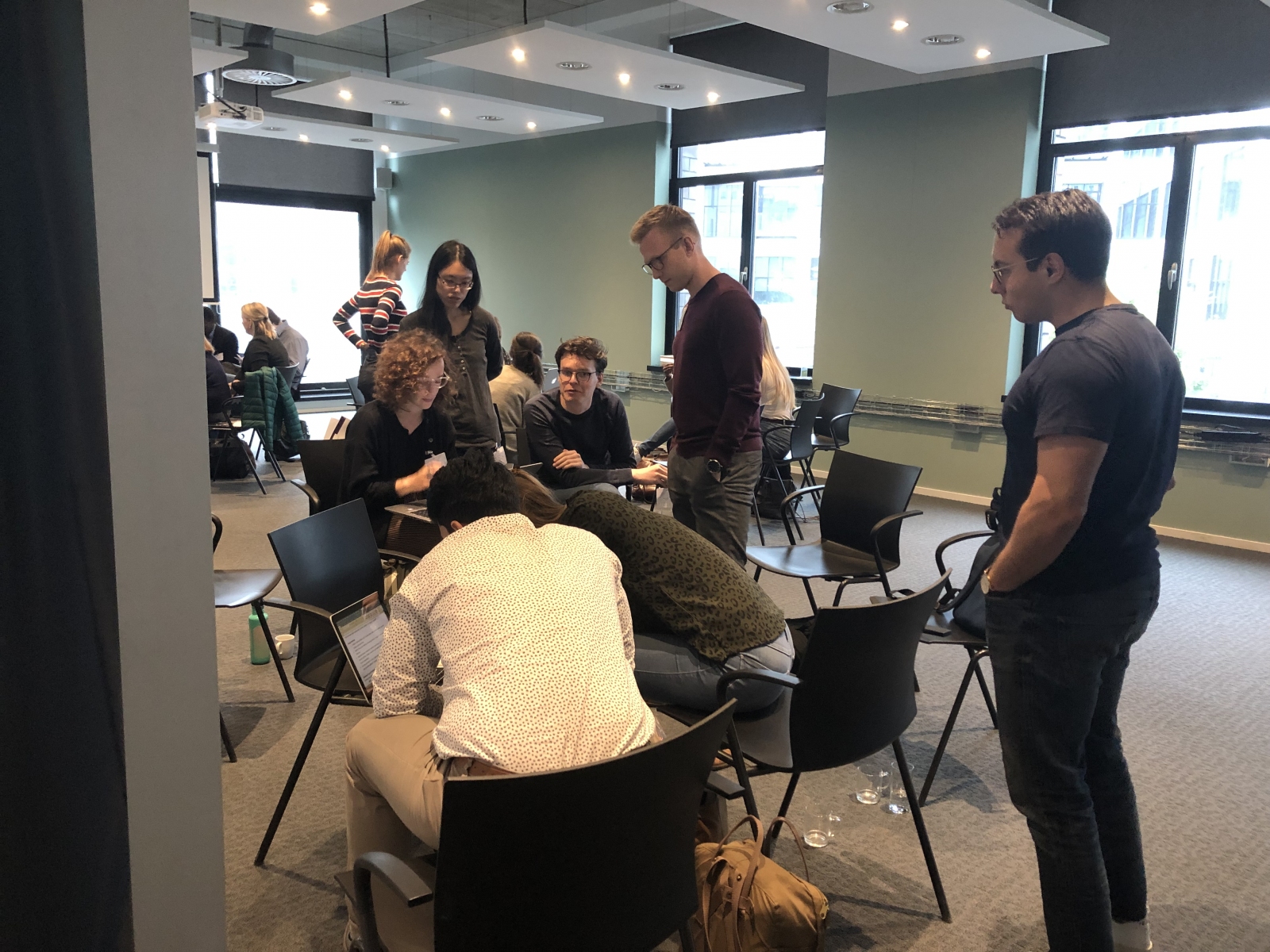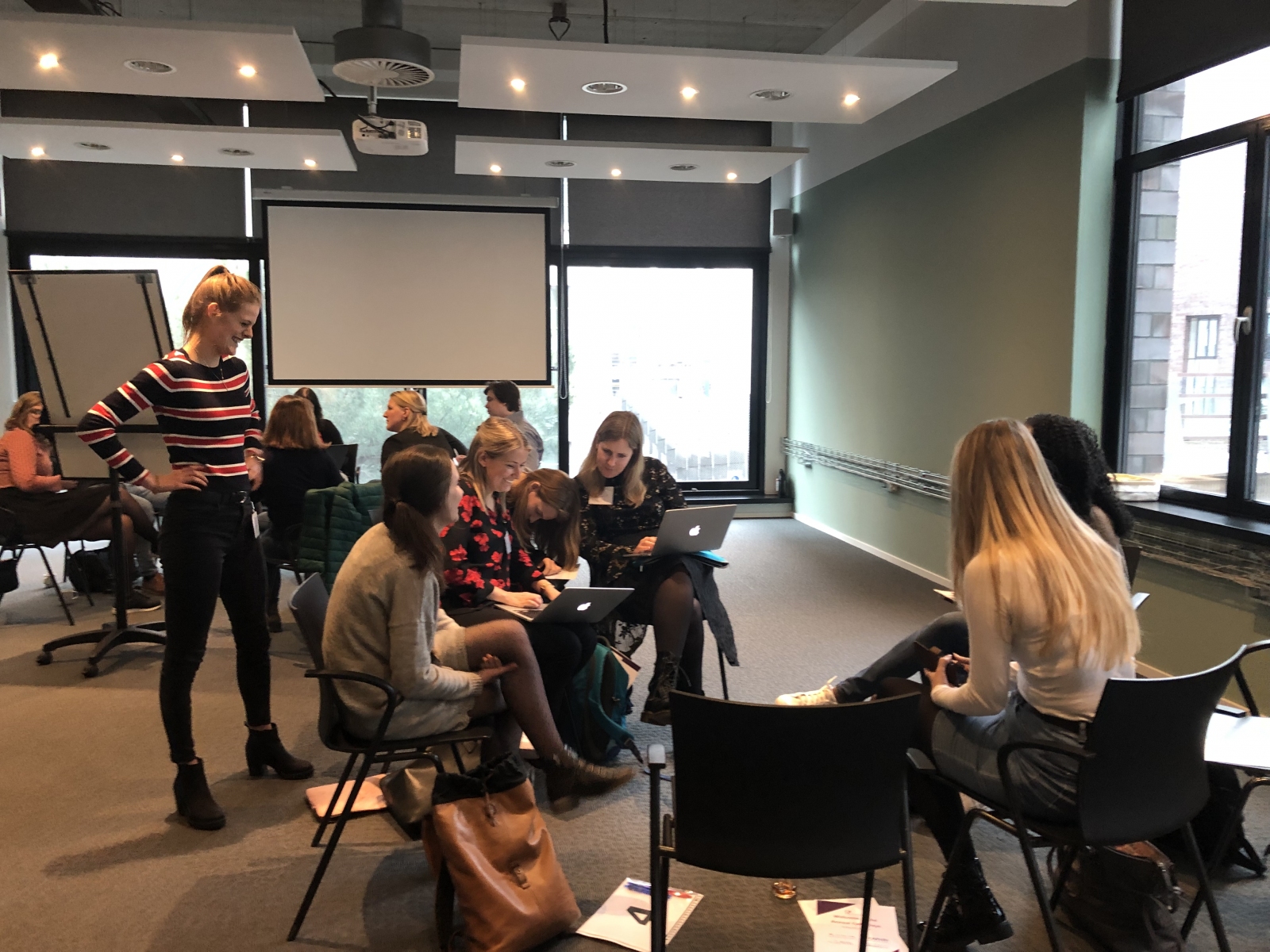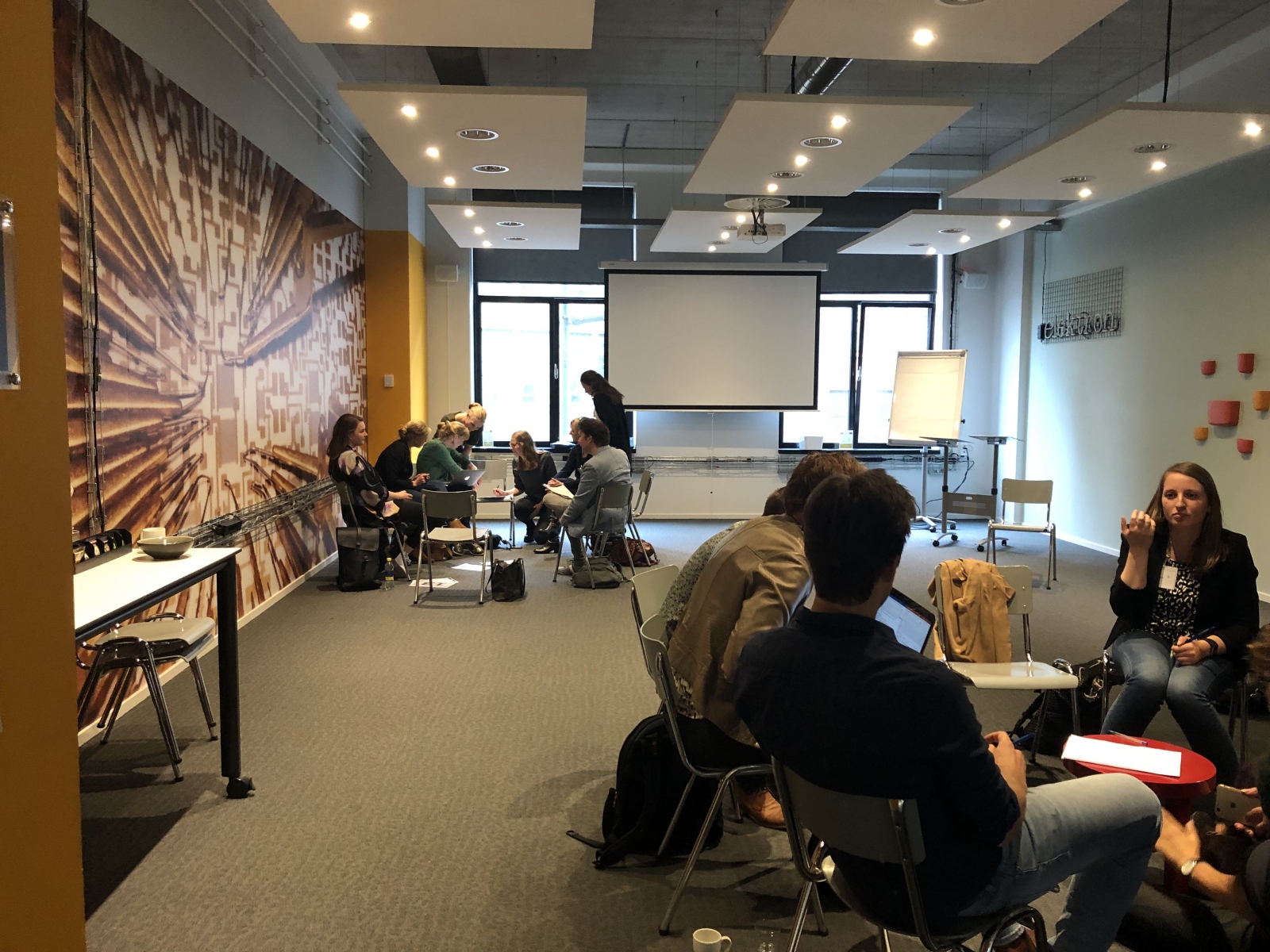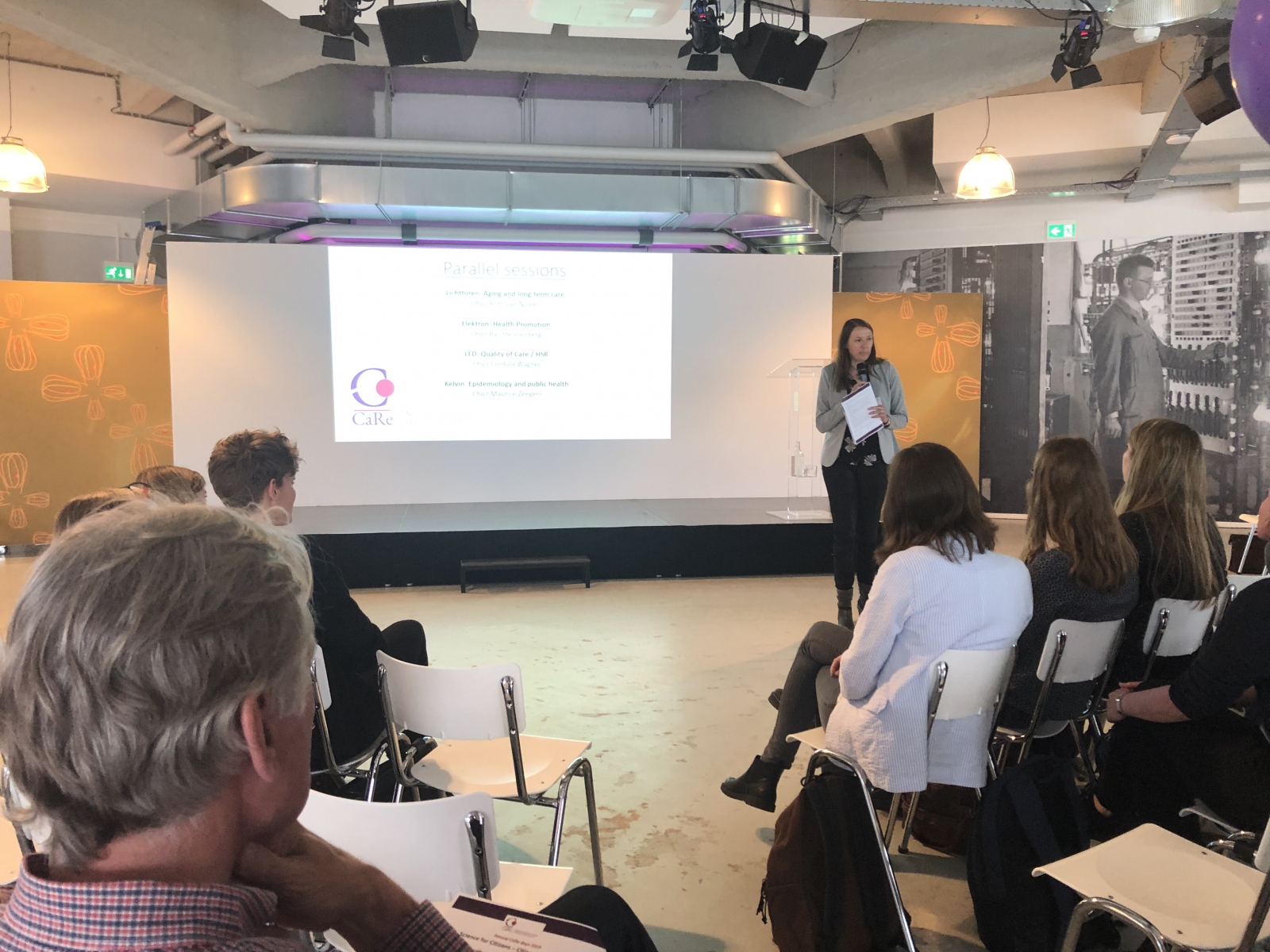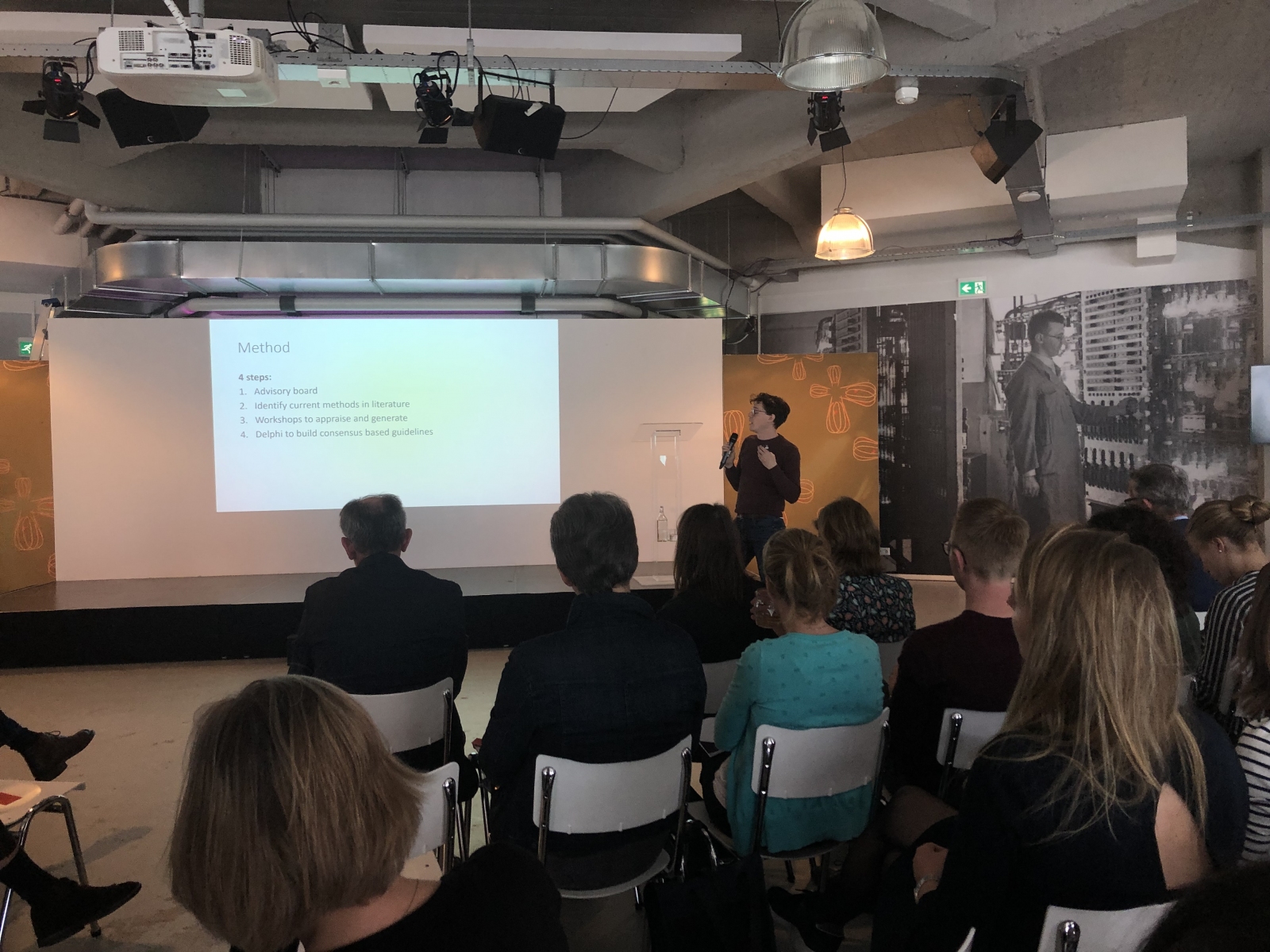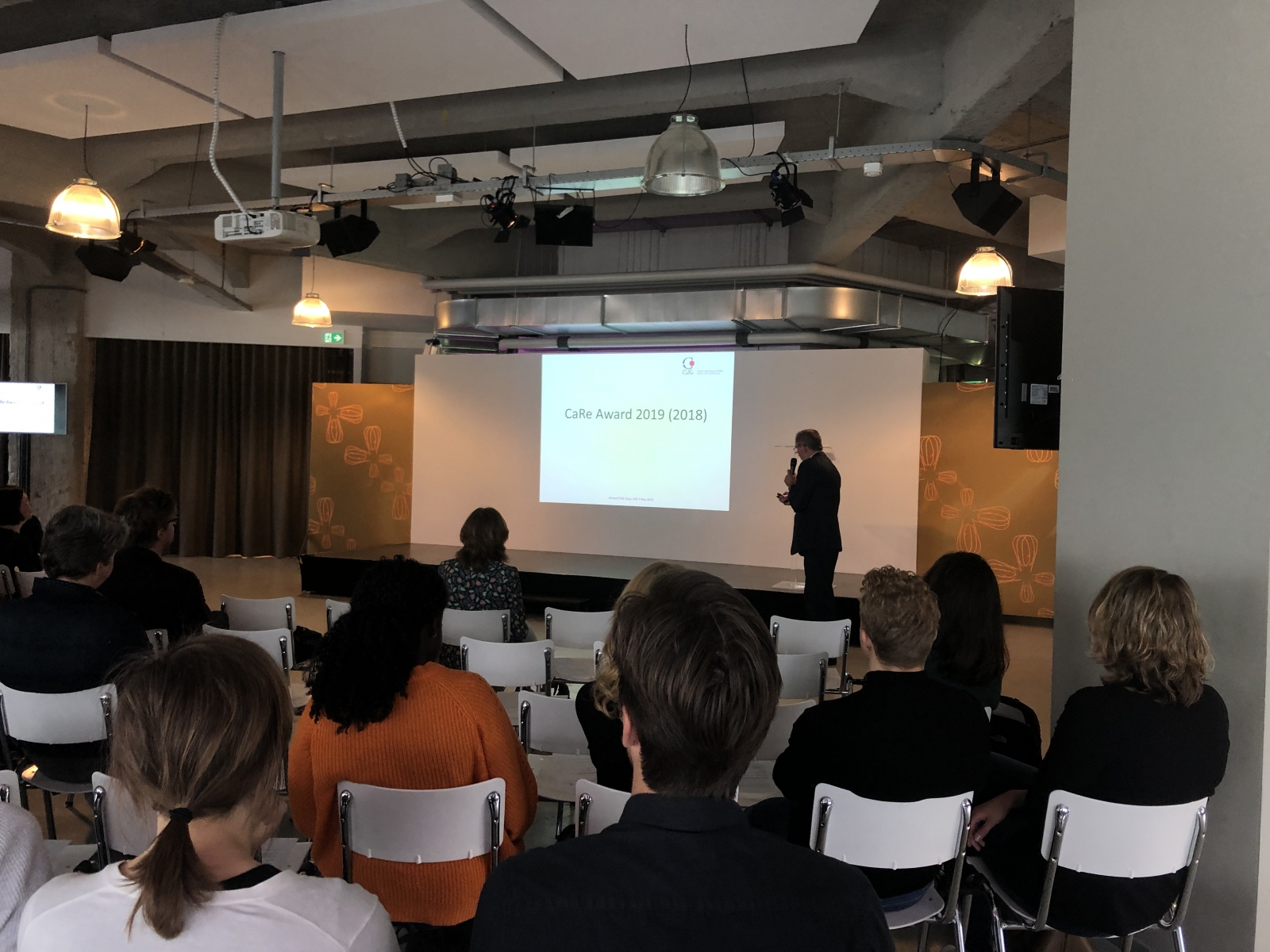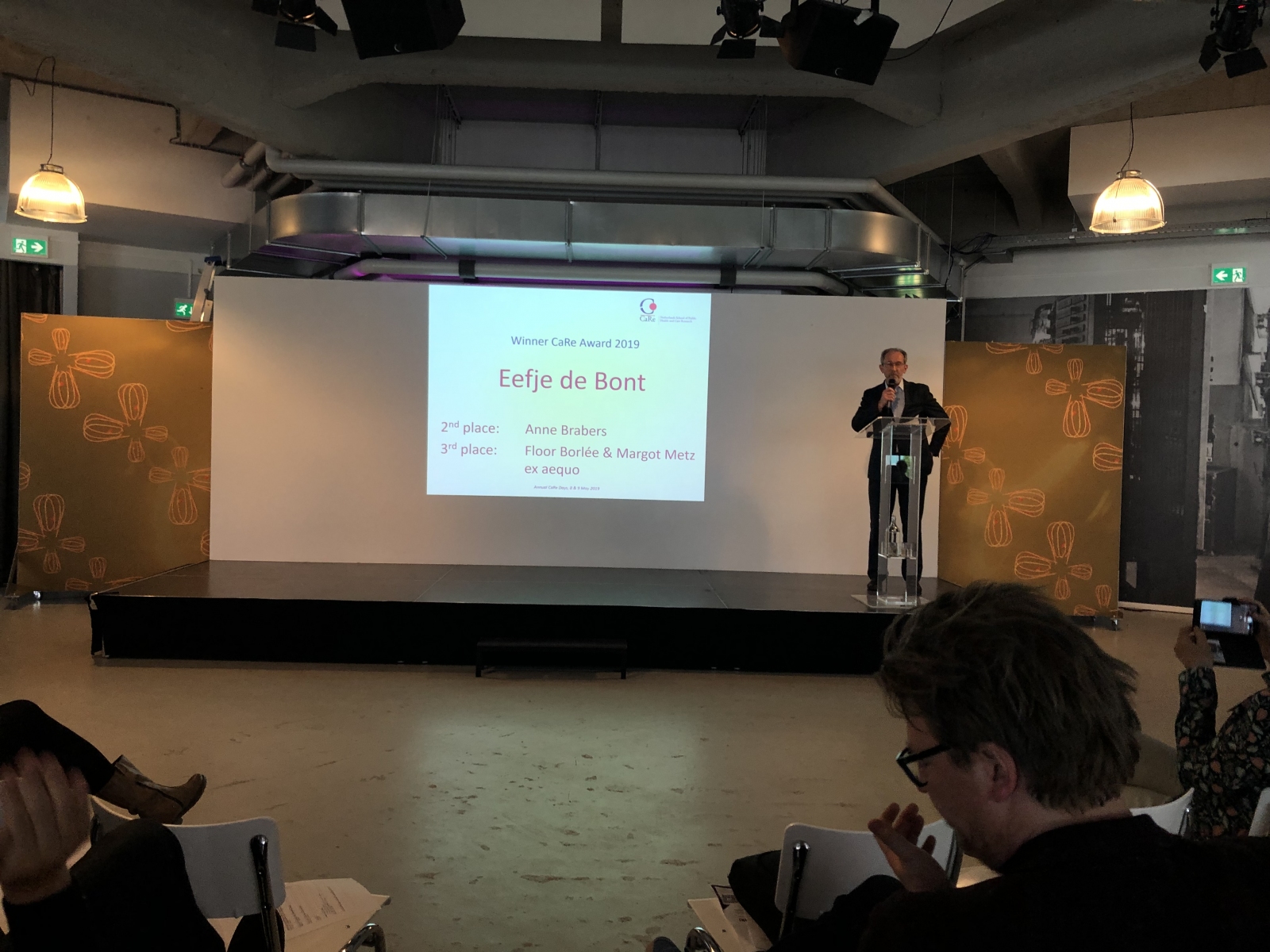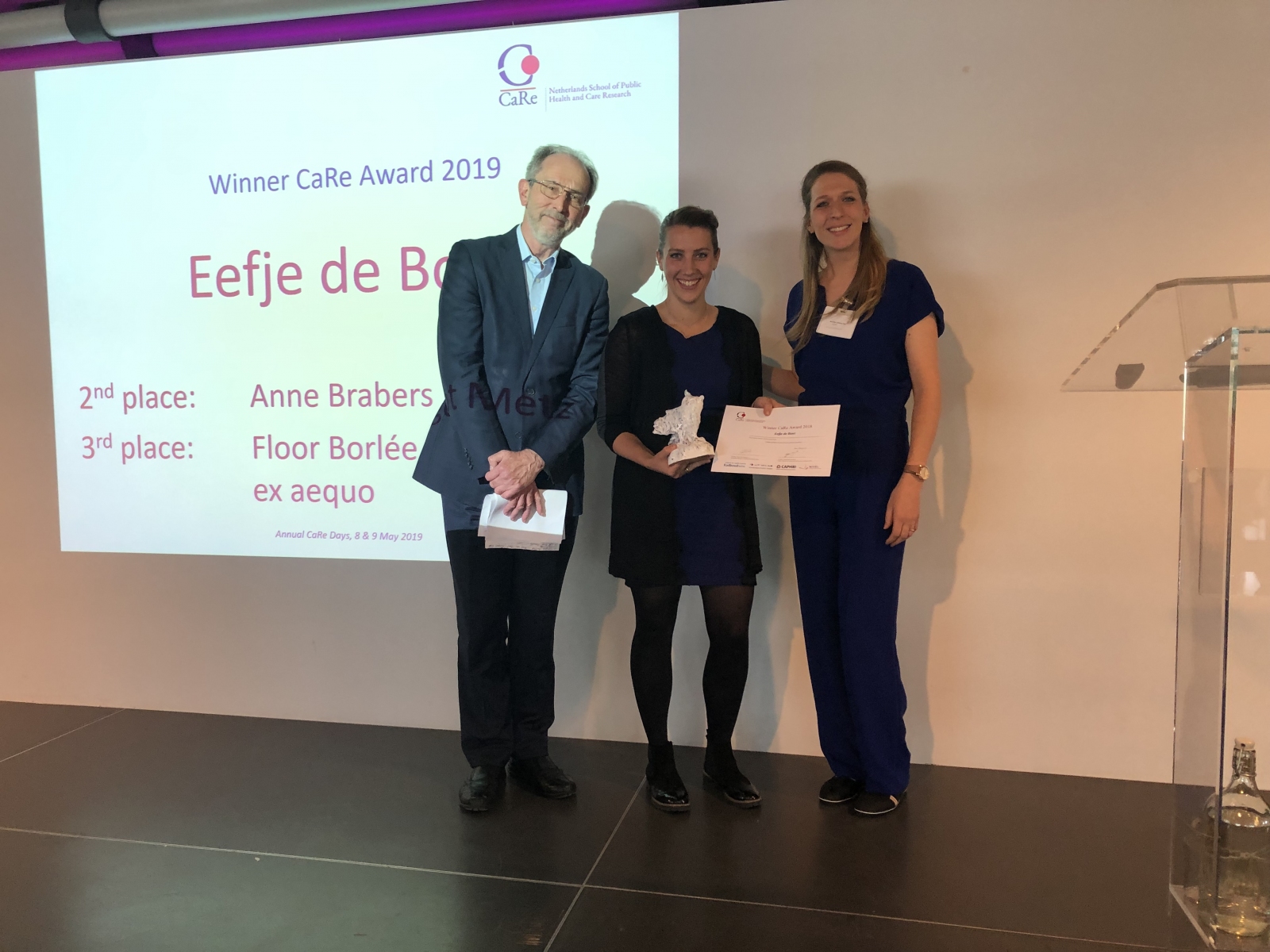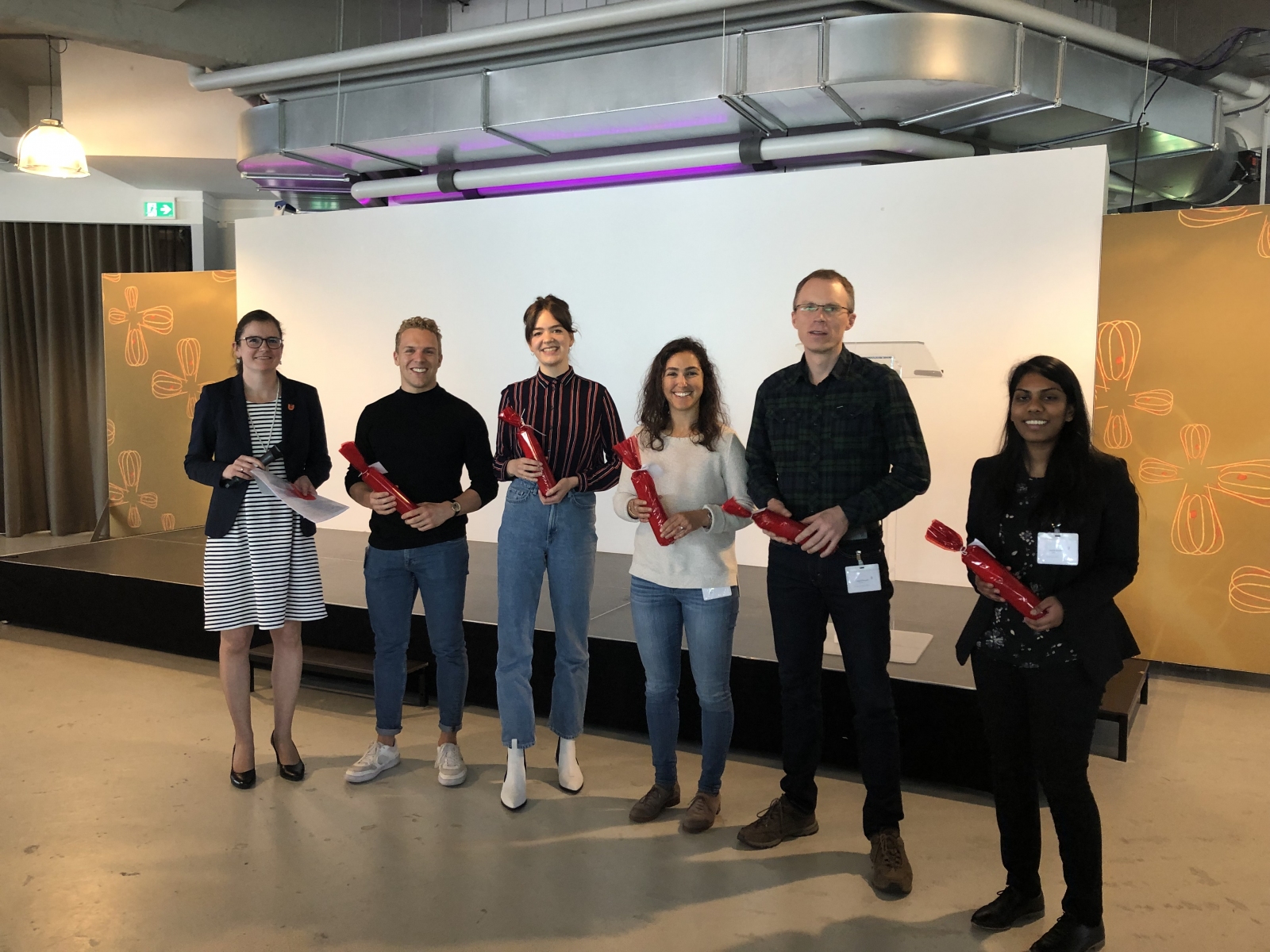CaRe days 2019
Citizens and science. This year’s annual CaRe Days took place at the Inntel Hotel Arts in the center of the “City of Lights”, Eindhoven, on May 8th and 9th. Researchers (PhD candidates, junior and post-doc researchers, and professors) with a variety of backgrounds joined, to connect with and learn from each other. The central theme involved “Science for Citizens – Citizens for Science”. The theme was touched upon from various angles and perspectives. Onno van Schayck, Scientific Director of CaRe, opened both days with a welcoming speech.
First up: a challenge. The first day kicked off with a challenging, interactivetask; writing a grant proposal with an assembled group of junior researchers and PhD candidates from the different institutes (Nivel, CAPHRI, APH and RIHS). A jury of senior researchers judged their efforts and the best three ideas were presented on the second day. The assignment was thought-provoking and led to some interesting and creative research ideas. On the second day, junior researchers and PhD candidates also had the opportunity to present their own work and receive feedback from peers in an informal setting.
Plenary sessions. We learned from Derek de Beurs that computers are very good at recognizing the difference between muffins and Chihuahuas. However, learning about human characteristics in health care is much more challenging. Nonetheless, big data and machine learning are ‘hip and happening’ in individualized healthcare. Martijn van Ooijen taught us that if you regularly tweet about medical issues or complaints, you might just end up participating in scientific research! The data is out there and just a few hours of analyzing tweets may provide valuable information on groups of patients. Patrick Bossuyt discussed the importance of scientific research, touching upon common human biases. Although clinical expertise is valuable, we need critical appraisal of evidence, also in personalized healthcare. Evidence is one side of the story: Maria van de Muijsenbergh emphasized the importance of patient participation in research to establish tailored care.
Looking back. The varying perspectives covered in the plenary talks and the debate on day one demonstrated that the marriage between citizens and science might require some sessions of couple’s therapy to live happily ever after. Society, policy and research need to take advantage and find ways to work together. Looking back on two interesting days and hope to see you next year!
